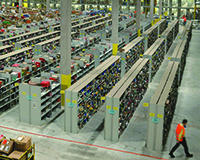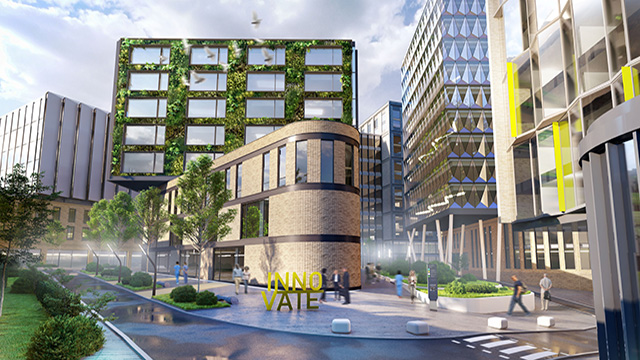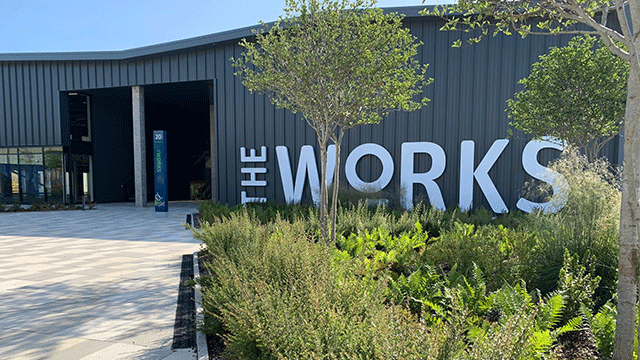
Amazon’s latest property innovation is a game-changer for the logistics market.
The mega-shed it is planning at Roxhill and Port of Tilbury’s London Distribution Park in Essex is forcing investors to change the way they think about logistics investments.
Aside from being the largest European prelet at 2.2m sq ft and the biggest investment at £150m, its four-storey building design and lease structure is revolutionary.
Legal & General’s annuity fund has forward-funded the deal, and if Amazon’s rise to power and the surge in online retail continues, there are likely to be more investment opportunities of this magnitude on the horizon.
However, the fact that the market has never seen a deal of this scale before, combined with Amazon’s hyper-secretive property strategy, has left many investors feeling perplexed. The market needs to prepare for this next generation of sheds, and understanding the complexities of this deal is the first step.
The lease
This will be the first multi-deck building in Europe to be made to such a high specification. Amazon wants it to be 70ft in height, and contain four permanent floors rather than temporary mezzanines. This will push up construction costs and, in turn, rent.
Amazon’s sway in the market means that few are willing to speak openly about the e-tail giant’s plans. But an agent close to London Distribution Park said: “Rents for standard sheds in Tilbury are around £7.50 per sq ft and cost around £35 per sq ft to build on top of the cost of the land.
“Adding the extra floors pushes the rent up, but investors will not accept paying a full market net initial yield for an asset that is over-rented, otherwise they will not get rental growth and increasing returns on their asset over time.
“So, the lease needs to be structured so that it has fixed linked uplifts and a method of protecting the property’s base rental value.”
L&G’s investment reflects a 5.25% yield. Amazon has agreed a rent of around £7.50 per sq ft on the base floor, which covers around 600,000 sq ft, and then a reduced rent on the upper floors of around £2.10 per sq ft on a 20-year lease with RPI uplifts.
The investment
L&G is investing heavily in the high-tech logistics sector, which it believes is a long-term “mega-trend”. However, others have suggested that the deal could be risky. Tilbury is not considered a superprime location, and it will be built to specific requirements, prompting the question of whether it would be suitable for another occupier in the future.
“Funds will pay a keen yield of 4-5% for a lease like this one, but will want to discount the price further based upon building specifics and location. So they have discounted the yield to account for the risk,” an agent familiar with the deal said.
One investor who considered the deal and the risks involved told EG that the building could be used for something else down the line. Planning documents state that the upper floors, although a permanent feature for Amazon’s use, have been designed to be removable should a future occupier require it.
“Even if there is not someone who wants 2m sq ft, sheds are getting bigger and there would also be the option to multi-let it,” says the investor. “You have to look at this as a modern building in the right location, which it is. It is a prime piece of real estate.”
Market responses?
The shed should be viewed by investors as a new hybrid product, and experts have already begun comparing both the physical and rental structure of this asset with those of offices, with higher rents paid for premium floors.
“I don’t think that this should be viewed as any different to office investments, as it makes sense to build warehouses up,” says one party involved with the deal.
“Many feel uncomfortable as there might not be anything comparable at the moment, but if you can get comfortable with the lease system and the fact that this is a new product, then there is no need to be frightened.”
Amazon is driving change in the sector, but it is likely that other occupiers will soon consider taking on multi-storey formats too.
Another party involved in the deal said: “This will not be seen as unusual in years to come, owing to the nature of online retail demand. We will see many more multi-level warehouses and the market needs to respond to what the occupiers want.
“The logistics market has been guilty, from an investment point view, of looking at past deals, but this deal will change the dynamics of how developers and investors work in this sector.”
• To send feedback, email amber.rolt@estatesgazette.com or tweet @amberrolt or @estatesgazette











